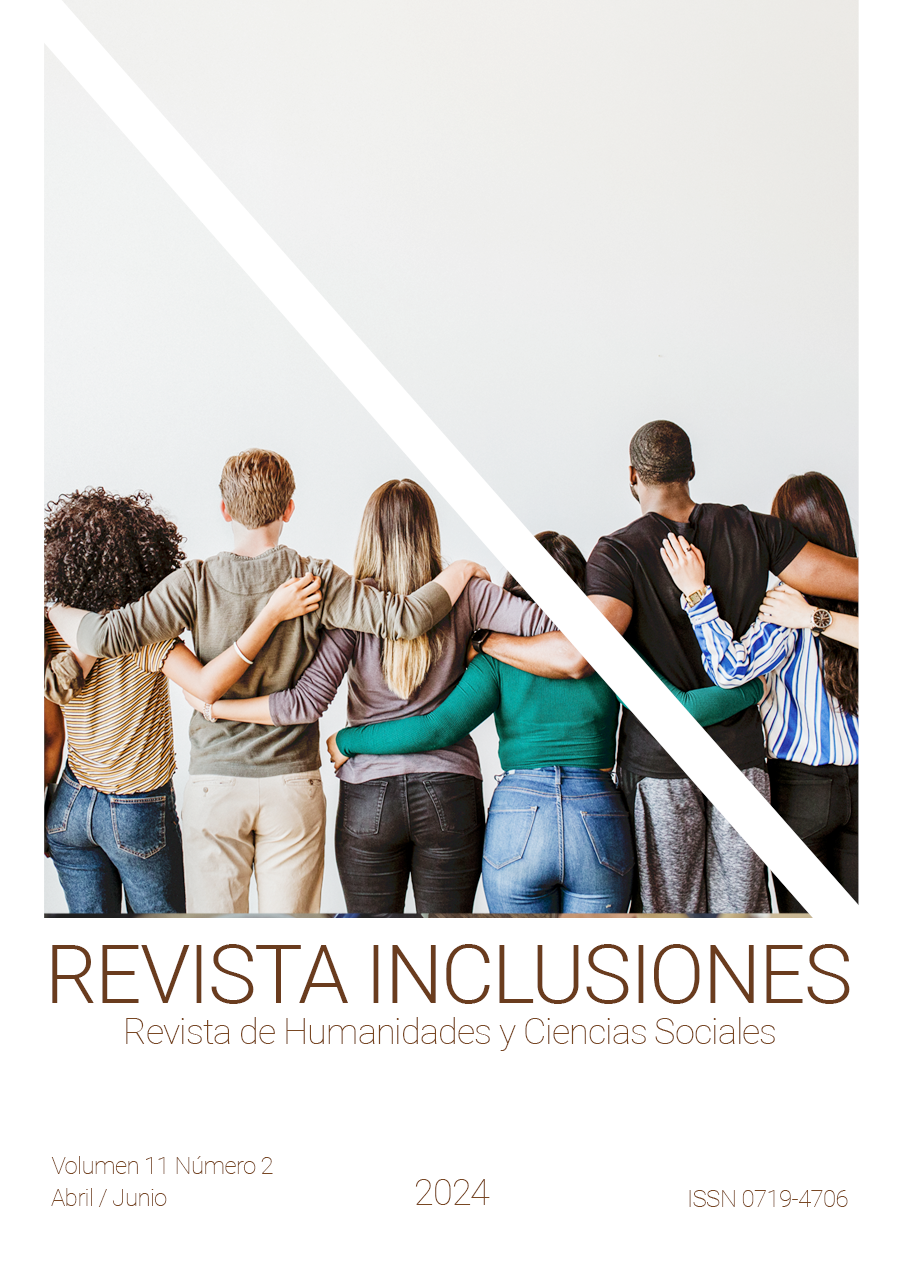Human Development and Care Ethics: Comprehensive Training of the Physical Educator from the University Well-being Area
DOI:
https://doi.org/10.58210/fprc3538Keywords:
Well-being, human development, healthy habits, physical education, ethics of careAbstract
Bienestar Universitario (BU) promotes integration among the members of an educational community with active, purposeful and co-responsible participation where its activities belong to everyone and everyone's responsibility for human development, comprehensive training and quality of life for students. Community members. This article seeks to highlight the influence of the BU in the comprehensive training of Physical Education professionals with a view to quality of life that promotes a perception of human development based on the potentialization of human capacities proposed by Nussbaum (2011), hand in hand with the conception and application of the ethics of care and healthy habits. Taking future graduates of Physical Education, Recreation and Sports from the Cenda University Corporation as a study population, with a research method proposed from the critical social paradigm with a mixed approach and the educational action research of Elliot (1966) and Lewin (1946), which seeks the components of change and social transformation, finding strategies that allow an enrichment of knowledge related to professional training, the implementation of a pedagogical proposal is addressed from the Teaching for Understanding model developed by Perkins (1999 ) where the student not only seeks the acquisition but also the application of the knowledge that is executed from the BU in the subjects of the career as part of a transversal process that broadens the participation of the students and also fosters a deeper look at the objectives of quality of life, human development, ethics of care and healthy habits udables promoted by the BU.
References
Arciniega, J. d. (2005). En la transición a la edad adulta. Los adultos emergentes. INFAD Revista de psicología, vol. 3, núm. 1 / Redalyc.org, 145-160.
Aristizábal, G., Blanco, M., Sánchez, A., & Ostiguin, R. (2011). El modelo de promoción de la salud de Nola Pender. Una reflexión en torno a su comprensión. Redalyc, 16-23.
Corporación Universitaria CENDA. (2018). Enfoque Pedagógico Cenda. Obtenido de https://irp-cdn.multiscreensite.com/3556541a/files/uploaded/cenda-enfoque-pedagogico.pdf
Corporación Universitaria Cenda. (2020). Política Institucional de Bienestar. Obtenido de https://irp-cdn.multiscreensite.com/3556541a/files/uploaded/politica-bienestar.pdf
Duperly, J., Sarmiento, O., Parra, D., Angarita, C., Rivera, D., Granados, C., & Donado, C. (2011). Ministerio de Protección Social. Obtenido de https://es.scribd.com/doc/206590447/Contenidos-pedagogicos-evidencia-cientifica-para-la-promocion-de-habitos-de-vida-saludable
Elliot, J. (2005). La investigación- acción en educación. Madrid-España: Morata S.L.
Gilligan, C. (2013). La Ética del Cuidado. Barcelona: Fundació Víctor Grífols i Lucas. c/ Jesús i Maria, 6 - 08022 Barcelona.
Habermas, J. (1990). Conocimiento e interés. Buenos Aires: Taurus.
Hernández-Sampieri, R., Fernández, C., & Baptista, P. (2014). Metodología de la investigación. México: McGRAW-HILL / INTERAMERICANA EDITORES, S.A. DE C.V.
Herreras, E. B. (2004). La docencia a través de la investigación - acción. Revista Iberoamericana de Educación, 1-14.
Martínez, H. V., & Martínez Hernández, L. M. (2019). La importancia del docente en la transversalidad. Praxis investigativa REDIE, 75-89.
MEN. (1994). Ley 115. En M. d. Nacional, Ley General de Educación (págs. 1-50). Colombia: Congreso de la República.
Naciones Unidas. (2019). Informe Nacional de Desarrollo Humano. Guatemala: PNUD.
Naciones Unidas. (21 de octubre de 2015). Naciones Unidas. Obtenido de https://www.un.org/ga/search/view_doc.asp?symbol=A/RES/70/1&Lang=S Nussbaum, M. C. (2011). Crear capacidades, propuesta para el desarrollo humano. Barcelona, España: PAIDÓS, estado y sociedad.
Organización de las Naciones Unidas para la Educación, la ciencia y la cultura. (2015). UNESCO. Obtenido de https://es.unesco.org/gap/meta-objetivos
Rodríguez, D. L. (2021). Neuropedagogía Socioafectiva: Una educación hacia el bienestar humano. Neuroeducación, 40-46.
Rodríguez, R. B. (2012). Martha Nussbaum: Las capacidades humanas y la vida buena. Revista cultural Turia, 155-169.
UNESCO. (2015). Organización de las Naciones Unidas para la Educación, la Ciencia y la Cultura. Obtenido de https://es.unesco.org/gap/meta-objetivos
Vargas, L. M. (1994). Sobre el concepto de percepción. Alteridades, 47-53.
Vásquez, V. (2009). La educación y la ética del cuidado en el pensamiento de Nel Noddings. Valencia: Universitat de Valencia.
Published
How to Cite
Issue
Section
License
Copyright (c) 2024 Derly Prada Castro

This work is licensed under a Creative Commons Attribution 4.0 International License.
Los autores retienen los derechos de autor y otorgan a Revista Inclusiones el derecho de publicación bajo Creative Commons Attribution 4.0 International (CC BY 4.0). Esto permite el uso, distribución y reproducción en cualquier medio, siempre que se otorgue la debida atribución al autor.











